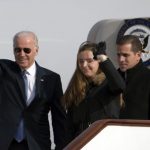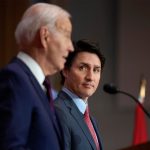Executives working for TikTok, a video sharing app, took a shellacking on Thursday while they answered questions from lawmakers on the House Energy and Commerce committee. Amid concerns about national security, the company’s leadership were quite uncomfortable during the hearing.
But at least one of them channeled the likes of AOC when she struck back against members who criticized the app, which is owned by Chinese company ByteDance.
During the hearing, Chief Operating Officer Vanessa Pappas accused members of the House Energy and Commerce committee of “xenophobia.”
She took to Twitter, saying,
We’re committed to providing a safe, secure platform, that fosters an inclusive place for our amazing, diverse communities to call home. It’s a shame today’s conversation felt rooted in xenophobia. Thank you to our employees who work tirelessly to protect our platform & community.
TikTok also released a statement in response to the hearing, criticizing members for engaging in political grandstanding rather than acknowledging the company’s efforts to improve safety.
TikTok Comms wrote, “Our CEO, @ShouChew, came prepared to answer questions from Congress, but unfortunately, the day was dominated by political grandstanding that failed to acknowledge real solutions already underway through Project Texas or address industry-wide issues of youth safety.”
Pappas’ comments appeared to stem from an exchange between Rep. Debbie Lesko (R-AZ) and TikTok CEO Shou Zi Chew during the hearing. Lesko repeatedly asked Chew to denounce the persecution of Uyghur Muslims by the Chinese Communist Party, but Chew evaded the question, and instead opted to focus on the app’s content. Lesko pushed back, saying, “I think you’re being pretty evasive. It’s a pretty easy question,” but Chew continued to avoid giving a direct answer.
Cybersecurity expert James Gillespie replied to Pappas’ tweet, saying, “One of TikTok’s core claims is that it is independent of its Chinese parent, ByteDance. So it seems reasonable for Congress to ask the CEO if he condemns the Uyghur genocide, because if he won’t that surely says something about how free he feels to displease Beijing.”
Journalist Gray Connolly also weighed in, adding, “You can see here how well the Chinese communist state apparatus has mastered the idiocies of the West & its media classes – pronouns, safetyism, ‘diverse communities,’ claiming ‘xenophobia’ … a masterclass in understanding & exploiting the West’s neuroses.”
But Pappas wasn’t the only one to make bizarre accusations of xenophobia.
In a recent statement, Mao Ning, a spokesperson for China’s Foreign Ministry, followed suit, lashing out at the U.S. for supposedly adopting a “presumption of guilt” and engaging in an “unreasonable crackdown” against TikTok, without providing any evidence. Mao laughably urged the U.S. to “respect the market economy and fair competition rules,” stop their “unreasonable crackdown” on foreign firms, and create an open, fair, and non-discriminatory environment for foreign companies operating in the US.
Mao also emphasized China’s commitment to protecting data privacy and security in accordance with local laws, adding that China has never and will never demand that firms or individuals violate local laws to collect or provide data and information stored in other countries. He also mentioned he has some prime oceanfront property in Idaho to sell us on the cheap.
I might have made that last part up. But he might as well have said it, right?
The controversy surrounding TikTok is due to concerns about the app’s data privacy practices, its ownership by a Chinese company, and its potential for censorship and propaganda. Some critics worry that TikTok’s access to user data could be used for malicious purposes, such as spying or influencing elections on behalf of the Chinese Communist Party. These concerns have led to calls for TikTok to be banned or for increased regulation of the app. Some states have passed, or are considering, legislation that would outlaw the app.
There’s no denying that TikTok has access to vast amounts of user data, and the worry that this data could be used for malicious purposes is not unfounded. The potential that the CCP could use the app to collect sensitive data is very real, and it does not sound like the company’s leadership gave a very persuasive assurance that this will not happen.
We cannot afford to turn a blind eye to these issues. There must be a proactive approach to addressing them. I’m not sure banning the app is the right move, but if national security is an issue, it just might be. The protection of our privacy and the integrity of our democratic processes are too important to ignore.


